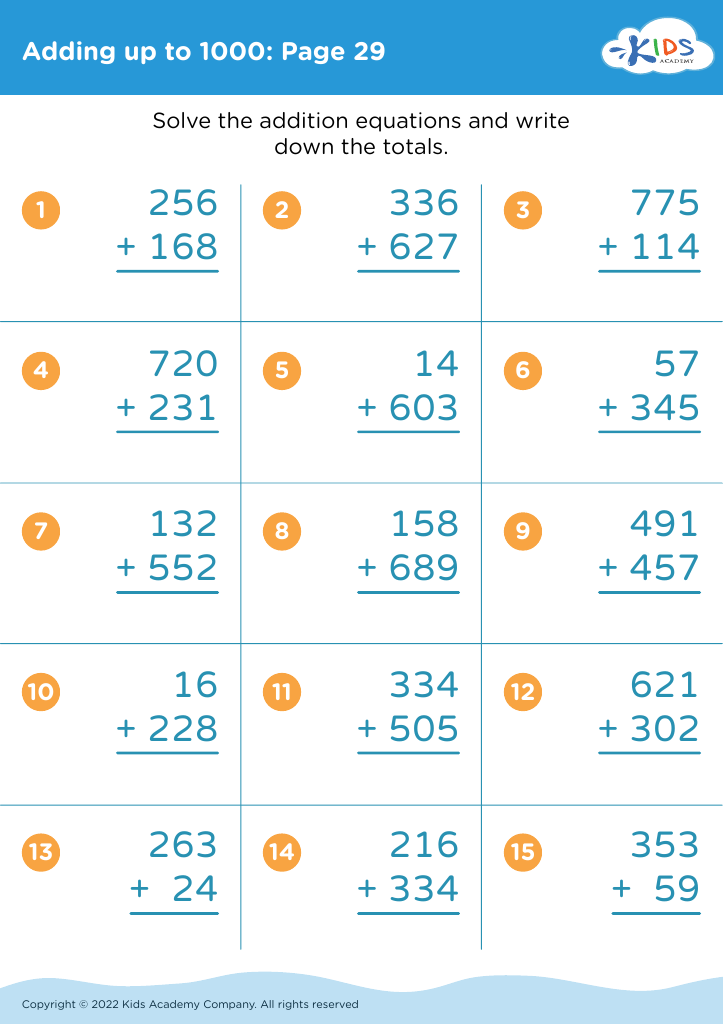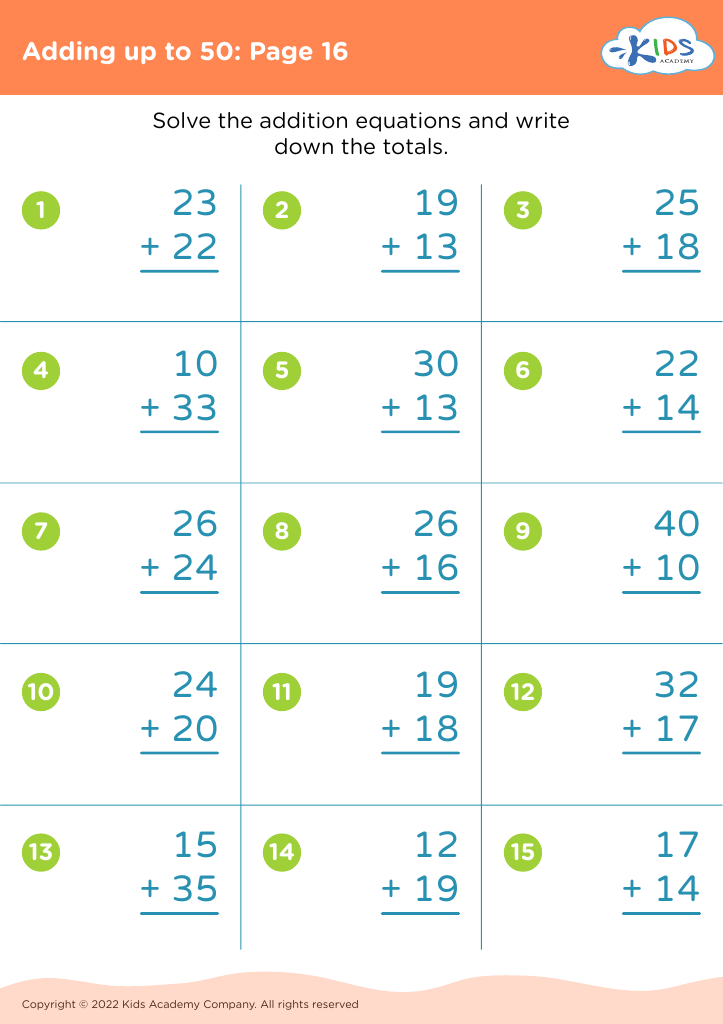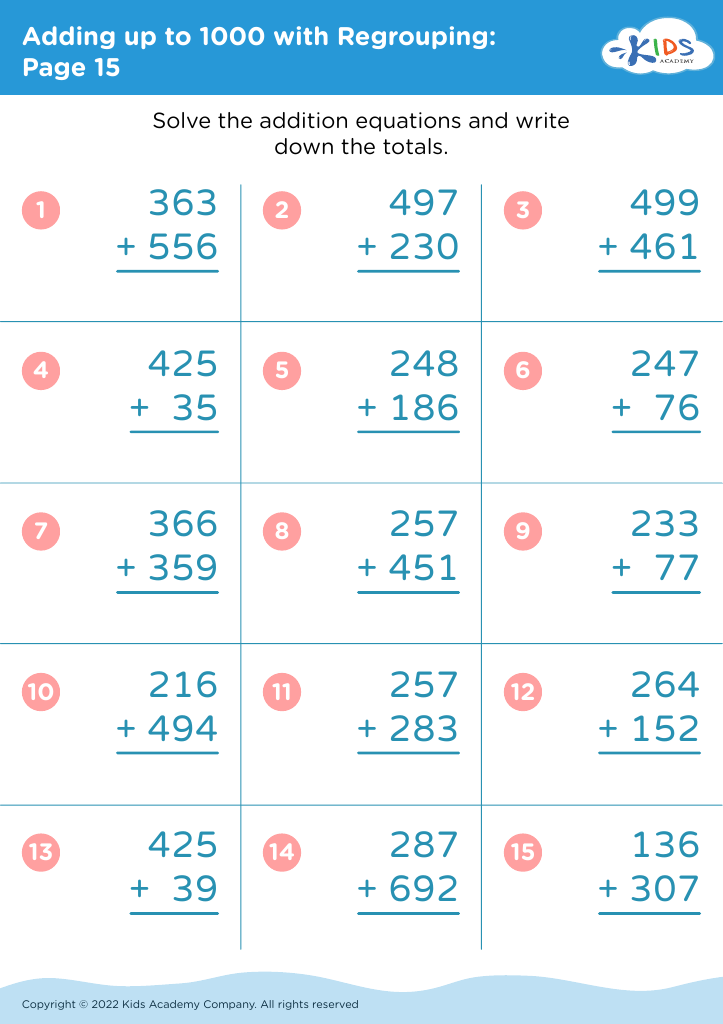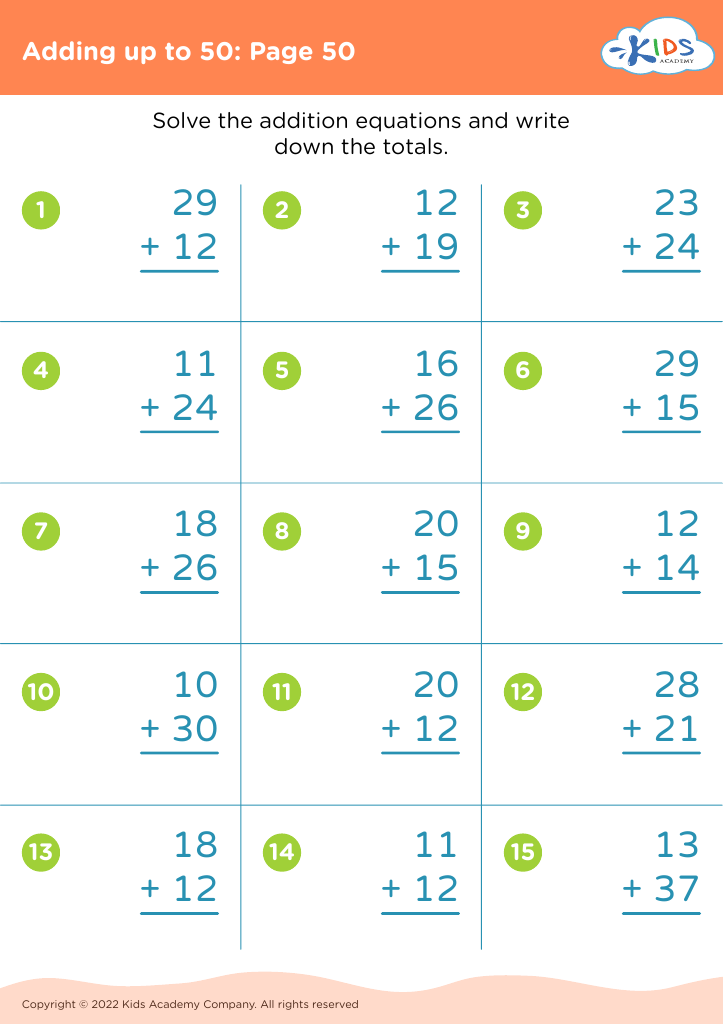Understanding time Addition Worksheets for Ages 5-8
6 filtered results
-
From - To
Enhance your child's math skills with our "Understanding Time Addition Worksheets" designed specifically for ages 5-8! These engaging and fun worksheets provide a unique approach to learning addition by incorporating time-based concepts. Young learners will practice addition through clocks, reading times, and solving problems related to daily activities. Perfect for home or classroom use, these worksheets promote critical thinking and reinforce math fundamentals in an enjoyable way. Watch your child gain confidence while mastering addition and time concepts together. Explore our variety of colorful and interactive worksheets to support your child's learning journey today!
Understanding time addition is crucial for children aged 5-8 as it lays the foundation for their mathematical skills and their ability to navigate everyday life. At this early stage, children are developing critical thinking, problem-solving abilities, and basic number sense. Learning to add time—such as seconds, minutes, and hours—enhances their understanding of how numbers function and prepares them for more complex arithmetic.
Moreover, time management is an essential life skill. When children learn to add time, they gain the ability to estimate the duration of activities, plan their schedules, and establish routines, which fosters a sense of responsibility. It helps them understand concepts like punctuality and the importance of adhering to timelines, directly affecting their success both in school and beyond.
Parents and teachers play a vital role in this developmental stage. By emphasizing time addition through practical activities—like calculating study time, playtime, or family schedules—they can make learning engaging. This reinforces foundational math skills and motivates children to recognize the relevance of math in real life, enhancing their curiosity and enthusiasm for learning. Thus, fostering a strong grasp of time addition can significantly benefit children's overall academic progress and personal growth.



























